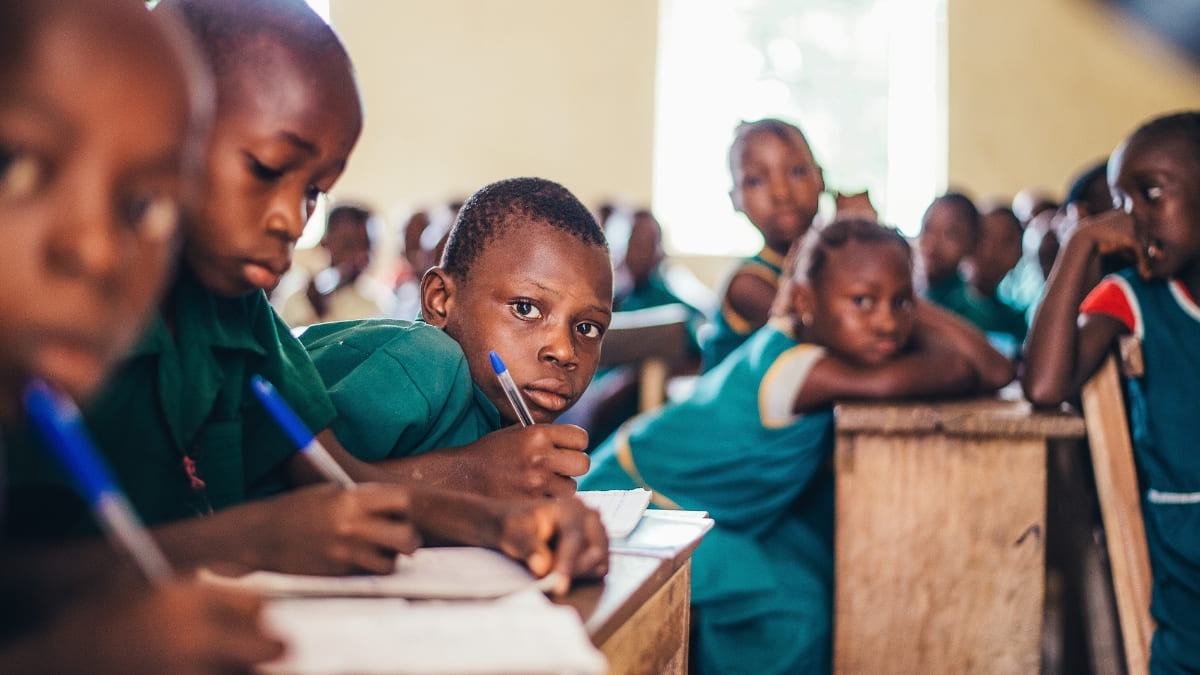Written by Marla Spivack
Earlier this year I had the opportunity to sit down for an in-depth conversation with Dr. Dzingai Mutumbuka, the first Minister of education of Zimbabwe after its independence, a global education leader and (to our great fortune) the chair of the RISE Delivery Board.
I had already been fortunate enough to benefit from Dr. Mutumbuka’s insights on the global education architecture, through conversations he’d led with the Board. I also knew his thoughts on the most pressing challenge facing education systems today: the prolonged school closures due to COVID-19 and the risks they posed to further exacerbate the learning crisis. But this was the first time I had a chance to ask Dr. Mutumbuka about his experience as an education leader. Our conversation, which was recorded and is available as the first episode in RISE’s new podcast, touched on a range of issues education leaders face: navigating complex political challenges; setting and sticking to clear priorities; building effective, equal partnerships with donors; and leveraging global knowledge to develop local solutions.
Negotiating complicated politics
We started our conversation with Dr. Mutumbuka’s reflections on leading the new ministry of education in the newly independent, post conflict Zimbabwe. Black parents, whose children had been excluded from quality education for decades under the apartheid government demanded a swift move towards equity, integration, and inclusion, but at the same time white parents feared that integration would erode the quality of the children’s education.
Dr. Mutumbuka knew that negotiating these complicated issues would require consultation and coalition building. He started his tenure by meeting with all relevant stakeholders, white parents, black parents, teachers, trade groups, industrial groups.
“The temptation, as always, was to rush in and just start doing some things. But as I paused and reflected on the challenges… And it became clear to me that the first step was trying to win the hearts and minds of the different stakeholders in education.”
Compromise and set priorities
It was clear that issues around integration and inclusion were pressing on the country, but the solutions that other countries, like the US, had used to desegregate would not work in Zimbabwe. Busing was far too costly. So Mutumbuka devised a compromise, all schools would be open to all children but responsibility to get to the school fell to the parents. This slower integration process assuaged white parents’ fears.
At the same time, Mutumbuka emphasized to black parents that the goal should be quality education for every child in every school, not just for those who were able to get into “good” schools.
“So by focusing on quality, particularly quality of teachers, quality of instruction, quality of focus on task, we also ‘killed several birds’. People talk about girls’ education. People talk about equity, particularly for children coming from poor backgrounds. We killed this almost ‘in one stone’, because when we universalized primary education, and made it of high quality”
Create partnerships that serve national interests
Dr. Mutumbuka set a priority of quality education for all children and identified teachers as a key to delivery.
“Teachers were priority number one. What it meant was, I needed to train high-quality teachers in the minimum time available. So what I did was to devise a new system of training for primary school teachers.”
Donors were eager to support the emerging system and had their own proposals and priorities. But Dr. Mutumbuka focused on building partnerships that aligned with his goals.
“Up front I made it clear that anybody who wanted to support us, had to support our agenda. And if you did not support our agenda, we wanted to part as friends and we didn’t take your money.”
Bring global knowledge to bear, but develop solutions locally
Reflecting on his time as a minister of education and then later as a leader in the World Bank Dr. Mutumbuka shared developing solutions from within the system is key to improving outcomes.
“Those who engage in [education policy] should really have…humility… [and ] the patience to seek out solutions from people who are best placed to provide remedies on the basis of critical research and analysis… I also think that the best way for a minister to benefit is to bring global knowledge to their challenges, but to solve the problem locally.”
